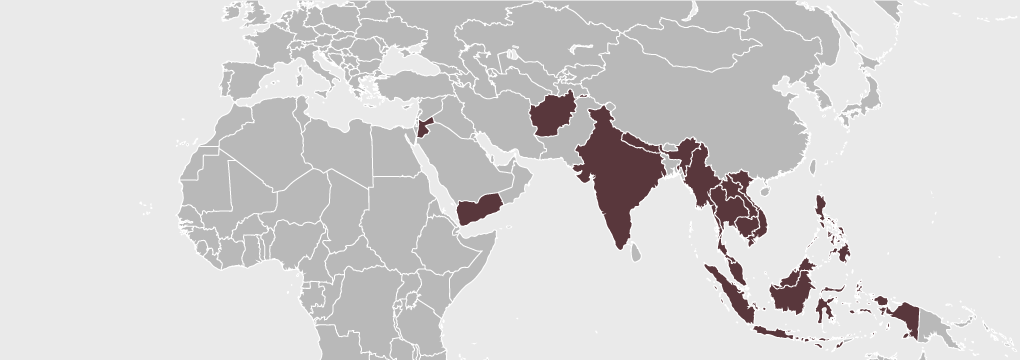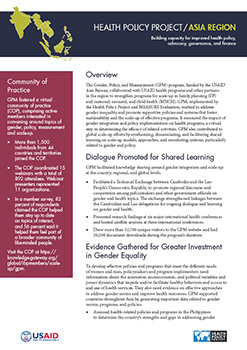The Health Policy Project ended in 2016. Work continued under Health Policy Plus (HP+) until 2022.
AME Region

Country & Regional Programs
- ► Africa
- ► Asia and the Middle East
- ► Europe and Eurasia (E&E)
- ► Latin America and the Caribbean (LAC)
Overview
AME Home | AME GPM | Gender | Policy | Measurement
Access to high quality healthcare poses a challenge to the overall health and well-being of women, children, and families throughout Asia and the Middle East (A/ME), particularly those who live in rural areas. As a result, many countries in the region suffer from high maternal and child mortality. In Asia, preventable conditions such as low birth weight are responsible for nearly 37 percent of all child deaths. One in 1,250 women dies due to complications from pregnancy or childbirth in the Middle East, due to the lack of quality healthcare. Scaling up efforts that strengthen health systems and expand the reach of essential services and commodities is essential in improving the overall health of all families and individuals in the A/ME regions.
What We Do
The Health Policy Project (HPP) and MEASURE Evaluation provide technical assistance and other support to USAID health programs in several countries within the A/ME regions to strengthen programs in family planning, reproductive health, and maternal and child health—helping to expand services to people that need them most. HPP programs complement existing health programs and collaborate with other donor and multilateral initiatives, and emphasize gender integration, policy implementation, and measuring the impact of these interventions.
AME Gender, Policy and Measurement Program
The Gender, Policy, and Measurement (GPM) program, funded by the USAID Asia and Middle East (A/ME) Bureaus, is collaborating with USAID health programs in the A/ME regions to strengthen programs for scale-up in family planning and maternal, neonatal, and child health. Implemented by HPP and MEASURE Evaluation, the GPM project works with USAID missions and other partners to address gender inequality and implement supportive policies that build the foundation for scale-up and enhance the sustainability and of health initiatives. GPM also evaluates the impact of integrating gender and policy into health interventions to develop best practices for strengthening health systems. Read more.


